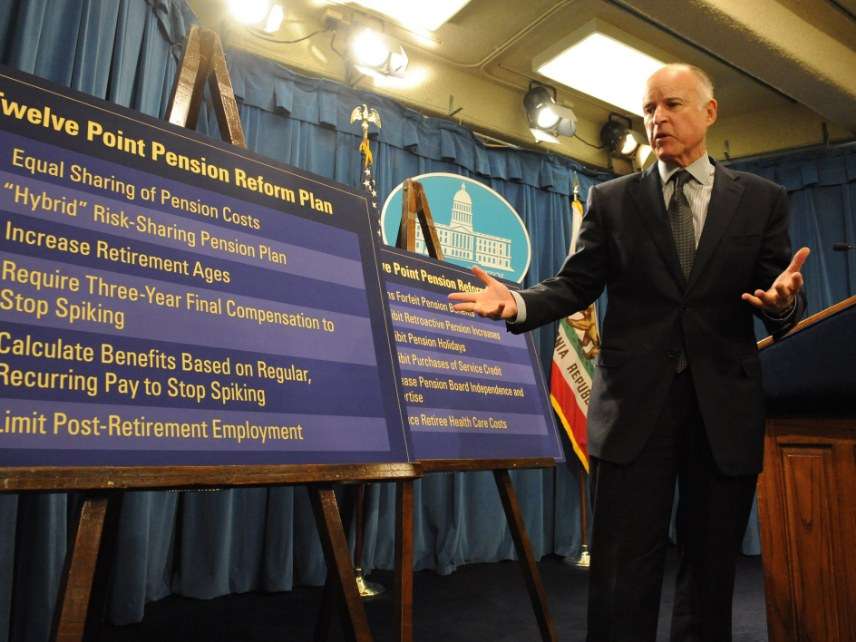California Supreme Court Dodges a Hard Call in Pension Ruling
One pension-spiking tool can be scaled back now, but the California Rule remains intact.

The California Supreme Court may have saved taxpayers some money today, but it also nimbly dodged the question of whether public employees' pension benefits can ever be scaled back.
The ruling leaves intact what is known as the "California Rule," a series of court precedents that have set up a legal regime where the state and its municipalities are only able to alter pensions benefits in one direction: more. Even as pension obligations threaten to bankrupt cities and even the entire state, courts have consistently ruled that pension benefits for employees cannot be scaled back once they have been offered.
In this particular case, the state's Supreme Court was asked to determine whether local governments could end the practice of "airtime purchases." This is the pension-spiking practice where public workers were permitted to "buy" an additional five years to attach onto their total time as a government employee. So, for example, a firefighter who worked for 20 years could be credited as working for 25 years, which jacks up the total pension that firefighter will be paid in retirement.
In 2011, Gov. Jerry Brown, who saw the state's pension crisis ballooning, pushed through reforms allowing local governments to end this practice if they wanted. This prompted Cal Fire Local 2881, a union representing firefighters, to sue on the basis that this reform counted as an impermissible rollback of pension benefits.
Today the Supreme Court ruled unanimously against the fire union. That's good news for anybody who cares about the state's fiscal sustainability. But the California Rule remains intact. The court ruled that airtime purchases are not contractually protected benefits under the state's pension regulations. Thus, the state can alter the rules for airtime purchases at it sees fit without violating the "California Rule." It's not a contractual benefit—it's a bonus.
That means the Supreme Court wasn't obliged to decide whether the "California Rule" is a constitutionally protected right of public employees. And so they punted that part entirely. The old precedents are still in place, and the state and its municipalities are stuck: They're unable to reduce what their financial commitments, even though the state's pension fund may be underwater and carrying more than $360 billion in unfunded liabilities.
Giving governments a chance to cut one type of pension spiking is a win. But keeping the California Rule intact is a loss.
Bonus link: Just last week, Steven Greenhut predicted the Supreme Court would "create yet another unresolved mess" with its ruling. He was right. Read his piece here.


Show Comments (27)